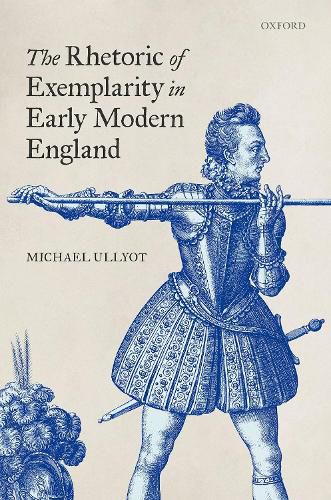Readings Newsletter
Become a Readings Member to make your shopping experience even easier.
Sign in or sign up for free!
You’re not far away from qualifying for FREE standard shipping within Australia
You’ve qualified for FREE standard shipping within Australia
The cart is loading…






In this study, Michael Ullyot makes two new arguments about the rhetoric of exemplarity in late Elizabethan and Jacobean culture: first, that exemplarity is a recursive cycle driven by rhetoricians’ words and readers’ actions; and second, that positive moral examples are not replicable, but rather aspirational models of readers’ posthumous biographies. For example, Alexander the Great envied Achilles less for his exemplary life than for Homer’s account of it. Ullyot defines the three types of decorum on which exemplary rhetoric and imitation rely, and charts their operations through Philip Sidney’s poetics, Edmund Spenser’s poetry, and the dedications, sermons, elegies, biographies, and other occasional texts about Robert Devereux, second earl of Essex, and Henry, Prince of Wales. Ullyot expands the definition of occasional texts to include those that criticize their circumstances to demand better ones, and historicizes moral exemplarity in the contexts of sixteenth-century Protestant memory and humanist pedagogy. The Rhetoric of Exemplarity in Early Modern England concludes that all exemplary subjects suffer from the problem of metonymy, the objection that their chosen excerpts misrepresent their missing parts. This problem also besets historicist literary criticism, ever subject to corrections from the archive, so this study concedes that its own rhetorical methods are exemplary.
$9.00 standard shipping within Australia
FREE standard shipping within Australia for orders over $100.00
Express & International shipping calculated at checkout
In this study, Michael Ullyot makes two new arguments about the rhetoric of exemplarity in late Elizabethan and Jacobean culture: first, that exemplarity is a recursive cycle driven by rhetoricians’ words and readers’ actions; and second, that positive moral examples are not replicable, but rather aspirational models of readers’ posthumous biographies. For example, Alexander the Great envied Achilles less for his exemplary life than for Homer’s account of it. Ullyot defines the three types of decorum on which exemplary rhetoric and imitation rely, and charts their operations through Philip Sidney’s poetics, Edmund Spenser’s poetry, and the dedications, sermons, elegies, biographies, and other occasional texts about Robert Devereux, second earl of Essex, and Henry, Prince of Wales. Ullyot expands the definition of occasional texts to include those that criticize their circumstances to demand better ones, and historicizes moral exemplarity in the contexts of sixteenth-century Protestant memory and humanist pedagogy. The Rhetoric of Exemplarity in Early Modern England concludes that all exemplary subjects suffer from the problem of metonymy, the objection that their chosen excerpts misrepresent their missing parts. This problem also besets historicist literary criticism, ever subject to corrections from the archive, so this study concedes that its own rhetorical methods are exemplary.